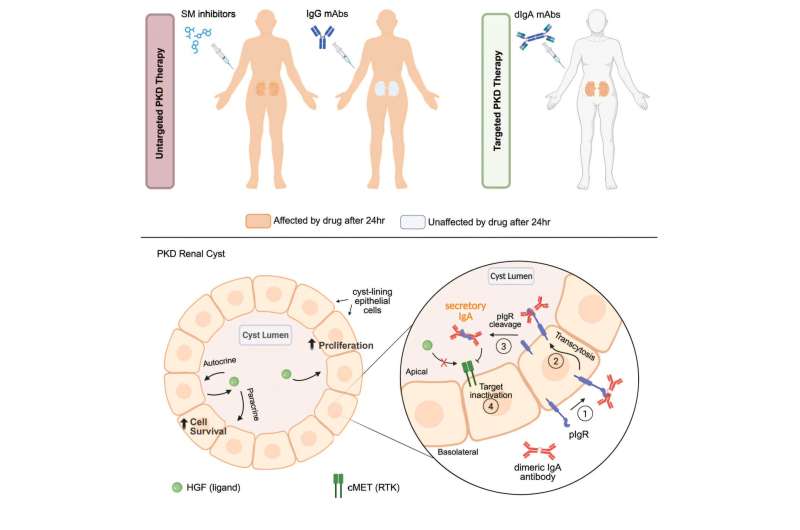Researchers at UC Santa Barbara, however, have proposed a cyst-targeted therapy that could interrupt the runaway growth of these sacs by leveraging the target specificity of the right monoclonal antibodies—lab-made proteins that are used in immunotherapy.
“The cysts just keep growing endlessly,” said UCSB biologist Thomas Weimbs, senior author of the study published in the journal Cell Reports Medicine. “And we want to stop them. So we need to get a drug into these cysts that will make them stop.”
Interrupting a runaway process
There are a variety of small-molecule drugs that promise to rein in the growth of these sacs. However, the only currently available drug that shows some effectiveness at slowing the progression of the disease comes with many side effects and toxicities to the tissues in and around the kidneys, Weimbs said.

